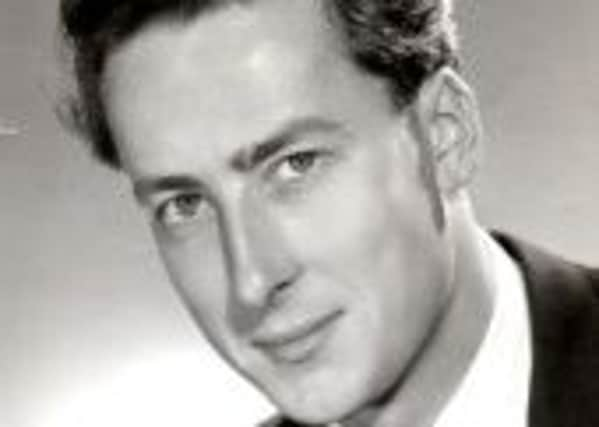Obituary: Derek Martinus, television director


Derek Martinus introduced the world to some of Doctor Who’s deadliest enemies, including the Cybermen, and directed the first “regeneration”, when the Doctor transformed on screen from veteran actor William Hartnell into Patrick Troughton.
No one really knew whether it would be effective back in 1966, but it worked so well that the “regenerations” have become a popular feature of the series whenever there has been a change of star. And Troughton’s arrival made life easier for Martinus as director.
Advertisement
Hide AdAdvertisement
Hide AdLike many people, Martinus found Hartnell difficult to work with – even though his links with Hartnell went back to 1958 and Carry on Sergeant, the first Carry On film, when Hartnell was the NCO and Martinus was a young actor playing one of the recruits.
Between 1965 and 1970 Martinus directed 26 episodes of Doctor Who, including the first episodes featuring the Cybermen, the Autons and the Ice Warriors and the first adventure to be shot in colour, by which time the series was onto its third Doctor, Jon Pertwee.
Martinus was born Derek Buitenhuis in Ilford in Essex in 1931. His grandfather emigrated from Rotterdam to London in the late 19th century and had a wholesale meat business at Smithfield Market. Martinus did National Service in the RAF and studied acting and directing at Yale, before running out of money and returning to the UK.
His showbusiness career began as an actor, but he was not confident that audiences were going to be able to pronounce the name Derek Buitenhuis, let alone remember it. Martinus was his brother’s middle name, but the brother agreed Derek could have it, and so he completed his own regeneration from Derek Buitenhuis to Derek Martinus.
He worked as an actor and director with various repertory and touring companies, and came to Scotland with several productions. He appeared in Brendan Behan’s The Hostage in both Glasgow and Edinburgh in 1960.
He met his wife Eivor on a study tour to Scandinavia the previous year when she was just 16. She became a novelist, playwright and theatre director and translated many classic plays into Swedish and Swedish plays into English.
Martinus learned Swedish and they worked together on several productions in Sweden. They married in 1963 and settled in England.
Doctor Who was one of his first assignments with the BBC. He joined the series in 1965 at the beginning of the third series, directing all the episodes in the Galaxy 4 storyline, in which the Doctor and his companions land on a planet populated by reptiles, robots and women, and it turns out the women are the really nasty species. Most of the episodes are lost.
Advertisement
Hide AdAdvertisement
Hide AdHe later recalled: “William Hartnell regarded me with great suspicion when I arrived. He knew I was the new boy and he wasn’t slow to remind me how many hundreds of films he’d done and how many directors he’d advised on how to get the shots… We sort of found a way of communicating, as one had to do.
“I remember the dear old man saying, ‘I have carte blanche on all the casting and all the script alterations, because they can’t do the serial without me.’”
However, the producers finally decided to try. As well as being somewhat crotchety on set, Hartnell’s health was failing and he found it increasingly difficult to remember and deliver his lines – as shown in Mark Gatiss’s BBC drama An Adventure in Space and Time last year. According to Whovian legend, on one occasion he told his companion to “check the fornicator” instead of “the fault-locator”.
Doctor Who had been going for three years when it was decided to drop Hartnell and its future was uncertain. The whole idea of an on-screen “regeneration” was equally uncertain, given the limited technology available almost half a century ago.
“We were trying to get a slow transformation, which wasn’t really possible,” Martinus said. “We were trying out new techniques using inlay and overlay. I can picture now the gasp of joy as that changeover actually worked. It was most important because it had to be good for the future of the show’s sake.”
Martinus said that ultimately he “quite liked the old boy”, but added that “it got a lot easier when Pat Troughton took over”.
Martinus directed the seven-episode Evil of the Daleks story with Troughton, although the Daleks had debuted on the show almost at the outset, two years before Martinus became involved.
He also directed more than 50 episodes of Z Cars (1968-78). Other credits include The Black Tulip (1970), A Little Princess (1973), Angels (1975-76), Blakes 7 (1979), Penmarric (1979) and the children’s series Dodger, Bonzo and the Rest (1985).
He is survived by his wife and two daughters Charlotta and Pia, who as children accompanied their father onto the set and even got to play inside the Daleks.